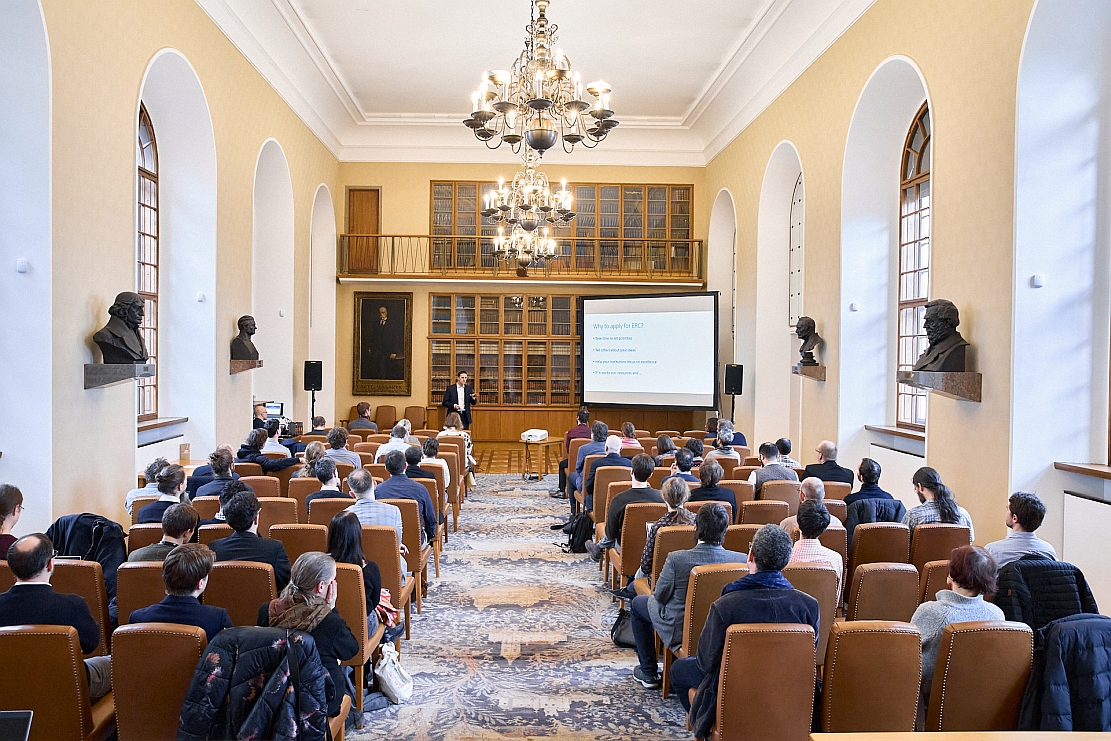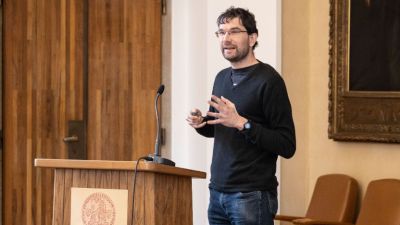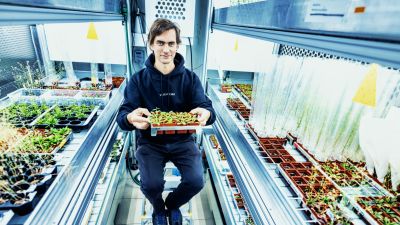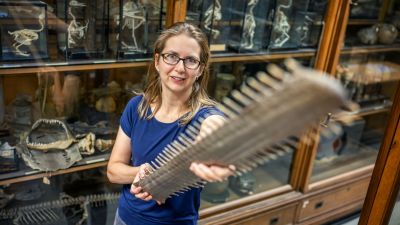For the eighth year in a row, promising young scientists at Charles University have received financial support from their alma mater to carry out groundbreaking research. Through Primus funding, Charles University has already supported a total of 162 top scientific research groups and laboratories. The number of this year's recipients stands at twenty.
The vice-rector for research, Ladislav Krištoufek, himself a former Primus recipient, welcomed attendees on Tuesday, 16, January, to the fifth annual Primus Day – a popularisation event aimed at driving up interest among the next potential applicants who have until April this year to apply. The vice-rector outlined who could apply and described what set internal Primus funding apart from more traditional grants or funding schemes.
“The idea behind Primus, founded in 2017, has always been the founding of new research teams led by principal investigators (PIs) with extensive international experience. In practice, that means either researchers not from the Czech Republic or researchers who returned several years after gaining experience abroad. Applicants must apply within eight years of completing their PhD. Primus was built to fight insular ‘inbreeding’ in the system and to promote ‘brain circulation’ as opposed to the former ‘brain drain’.”
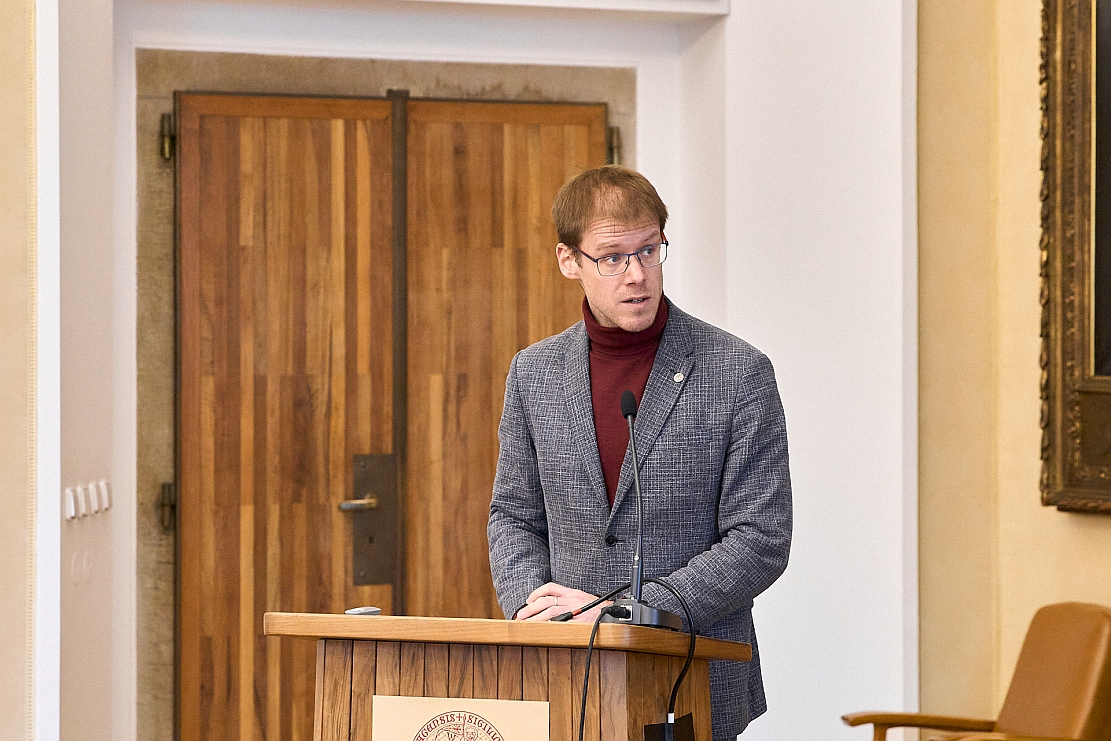
CU's Vice-Rector for Research Ladislav Krištoufek opens Primus Day on 16 January 2024.
Other CU research support is often for junior or PhD applicants the vice-rector stressed and Primus, he said, filled a previous gap: supporting postdocs who were just at the start of their careers – often ahead of applying for ERC or other grants. Primus, he stressed, followed an ERC logic and it is perhaps not surprising that many future ERC or ERC CZ holders received support – and had a chance to hone their skills – on Primus projects first.
“It is about supporting bold, mostly frontier research, possibly leading to breakthroughs in their respective fields. It is riskier. [If you have a strong proposal] CU is willing to take the risk and provide funding and ideally see the fruits of the project completed.”
Less tape, greater reward
With a lot less red tape, Primus frees up researchers to go in different directions and certainly off the beaten path in research, whether in medicine, the natural sciences and the social sciences and humanities. One requirement, is that 50 percent of the funding of up to four million crowns (around 170 thousand euros annually) must be shouldered by the respective faculty: failure to secure a commitment from a faculty means a project would be a no-go and would not have any chance of moving forward. The success rates, despite the perceived higher risk, is not at all bad, the vice-rector pointed out: 25 percent in medicine, 43 in the naturals sciences, and 32 in the social sciences and the humanities.
Primus Day is intended to showcase the benefits of Primus funding as well as special attributes promoting creativity and freedom. Seventy-five percent of ERC holders at CU clinched Primus funding first. The benefits are not only in the comparative lack of red tape but also in the experience of sharpening one’s ideas, learning how to submit a solid and enticing and successful proposal. It is the scientific equivalent of a Hollywood script pitch.
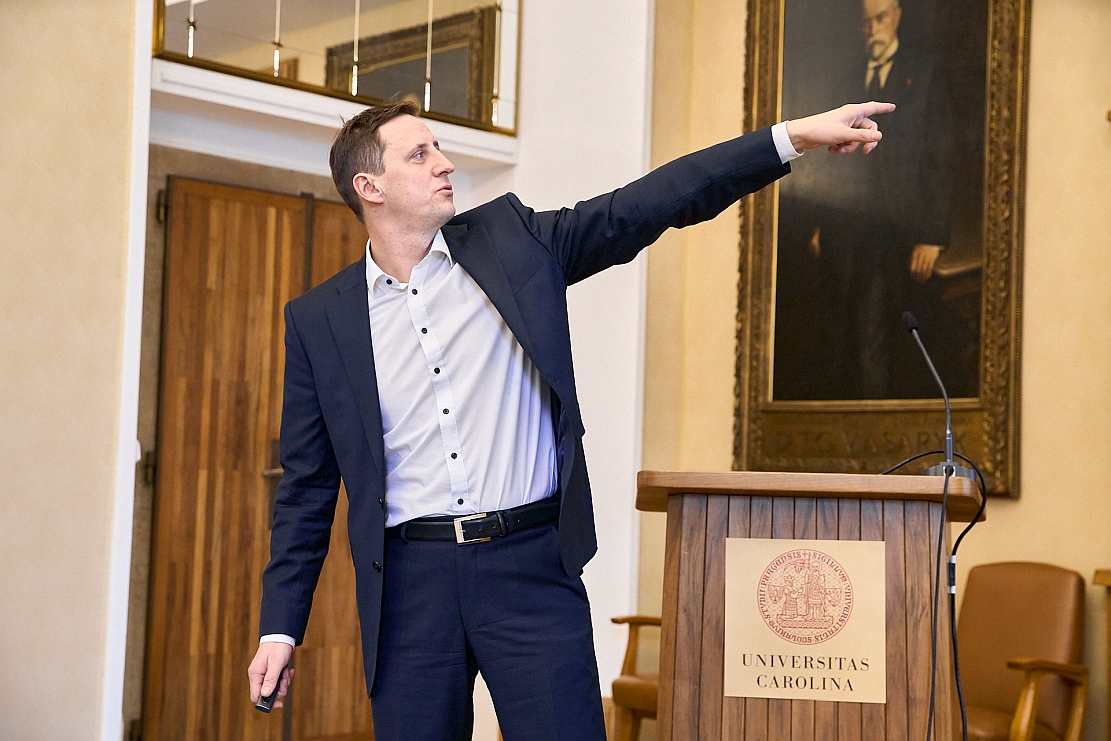
Economist Filip Matějka discussed his experience in applying for funding for research at Primus Day.
The economists’ take
For that reason, esteemed speakers on Monday included both notable ERC as well as Primus holders, including Czech economist Filip Matějka and German fellow economist Ole Jann. Both spoke about the ins and outs of preparing successful proposals, with Matějka telling attendees that successful proposals kept things simple and outlined their aims on the very first page so as to catch evaluators’ attention. The original title of his investigation was Systemic and behavioural reactions under imperfect and asymmetric endogenous information with Shannon entropy constraints. The title he went with? Behavioural and Policy Implications of inattention. His work, studying individual behaviour and the impact or cost of inattention, clinched the ERC grant. “Like Primus, the process of applying for ERCs can be used to push our institutions towards excellence. I was supported by CERGE-EI one hundred percent and the process helps the institute shape views on what novel research should look like.”
He and his colleague also cited what was important in planning as well as responding to changing factors. Jann’s project, for example, was heavily impacted by the Covid pandemic starting in 2020. He stressed the need to remain flexible and to adjust to changing conditions. Economic mathematical modelling he did, for example, largely shifted for a time to Covid contact tracing. Nothing, however, is ever lost. The former Oxford postdoc urged applicants with ideas to take advantage of what was on offer, saying the Primus has allowed him to build a research group despite the limitations of the pandemic – communication was, like for the rest of us, largely online. But the freedom and focus of Primus, he said, was overall the “biggest asset”. Jann urged potential applicants to be bold and not to be intimidated with how to invest money received. Like other recipients, he said that sharpening a project to its essence was essential: focus on doing one thing really well, he suggested, was perhaps better than trying to do too much. It would also certainly “leave the PI happier in the long run,” he said.
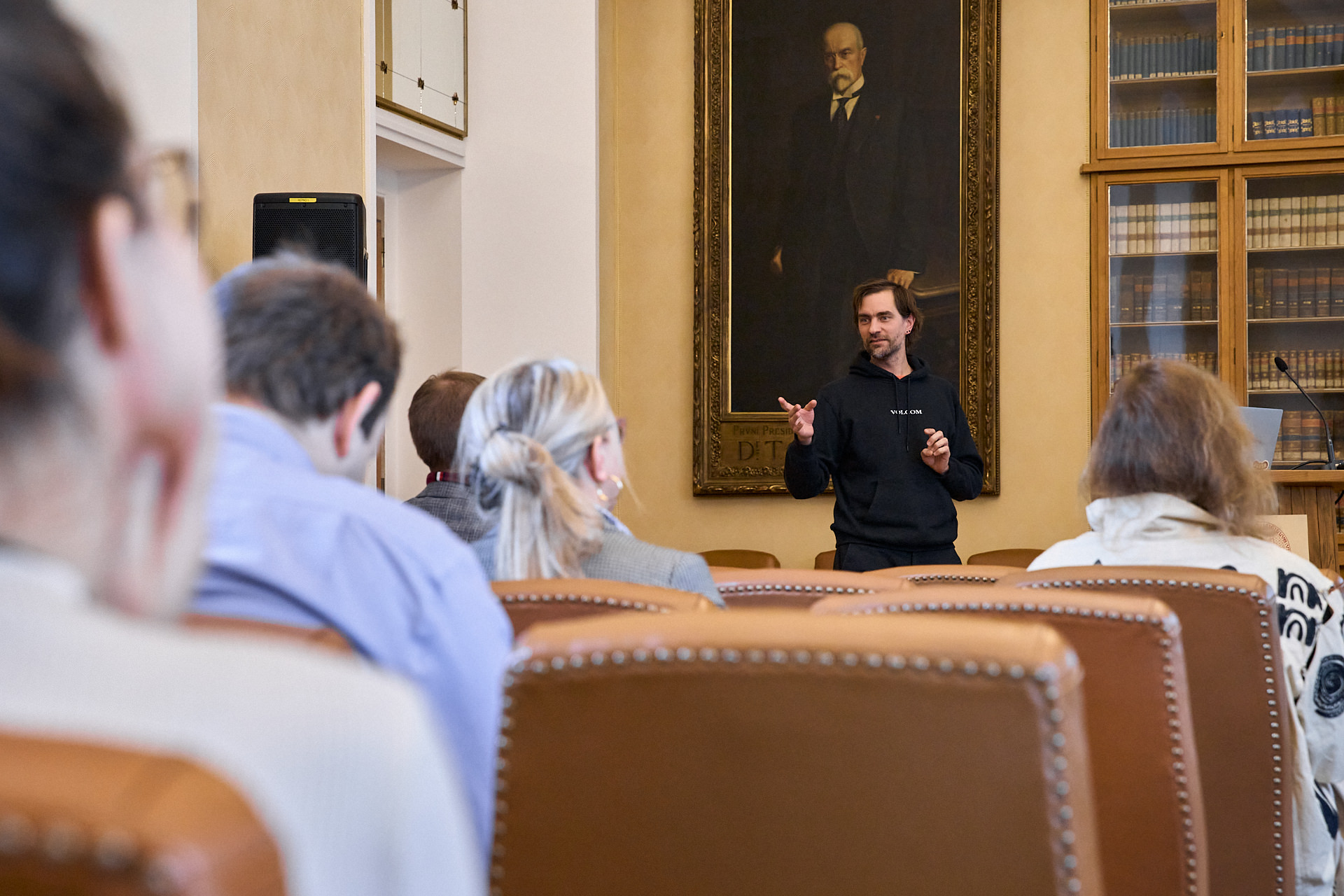
Highly-respected biologist Matyáš Fendrych spoke about some of the challenges of applying for funds and/or grants like the ERC.
Natural scientists
They weren’t alone by far in their positive assessments and suggestions how to best tackle application and afterwards, research. Matyáš Fendrych is a scientist who, with the support of an ERC Consolidator grant, is working with a research team to solve the mystery of the plant hormone auxin. Even a biologist working on cellular processes has revealed the key to success: “It's good to think carefully about what you really want to do before submitting a grant application. And then don't compromise, really focus on what you feel strong in and what you are interested in. This is the only way you will become more authentic, your text will be much easier to write and you will appear more convincing in the interview. The scientific articles that you have managed to publish within the team play quite a significant role.”
Klára Hlouchová received Primus support in 2020 for research on synthetic protein sequences in vivo. In her case, she says, the main thing was to find the right department that supported her Primus application and was willing to co-fund it. She found it at the Biotechnology and Biomedical Centre of the Academy of Sciences and Charles University (BIOCEV). “They seemed to believe in me somehow,” she says today with a smile. She says it is important not to be afraid when it comes to international grants. “The important thing is not to be grounded. Every grant call is different: while some expect to have basically half the work done within the preliminary data, others want to fund completely innovative and risky projects that cover completely new, unexplored scientific waters,” the successful researcher suggests.
Jan Dobeš, who is researching immune cells with his research group at the Faculty of Science of Charles University, was awarded the Primus in 2021. Forum magazine asked him about the path to successful funding: “I think everyone has their own experience in this, which is largely non-transferable. I guess it's hard to find just one thing, it's a mix of a certain amount of preparedness - you have to have a good head start, interesting ideas and results, and also a lot of luck. I guess all of that can always help to get a grant. But it's really hard to find a universal recipe...”
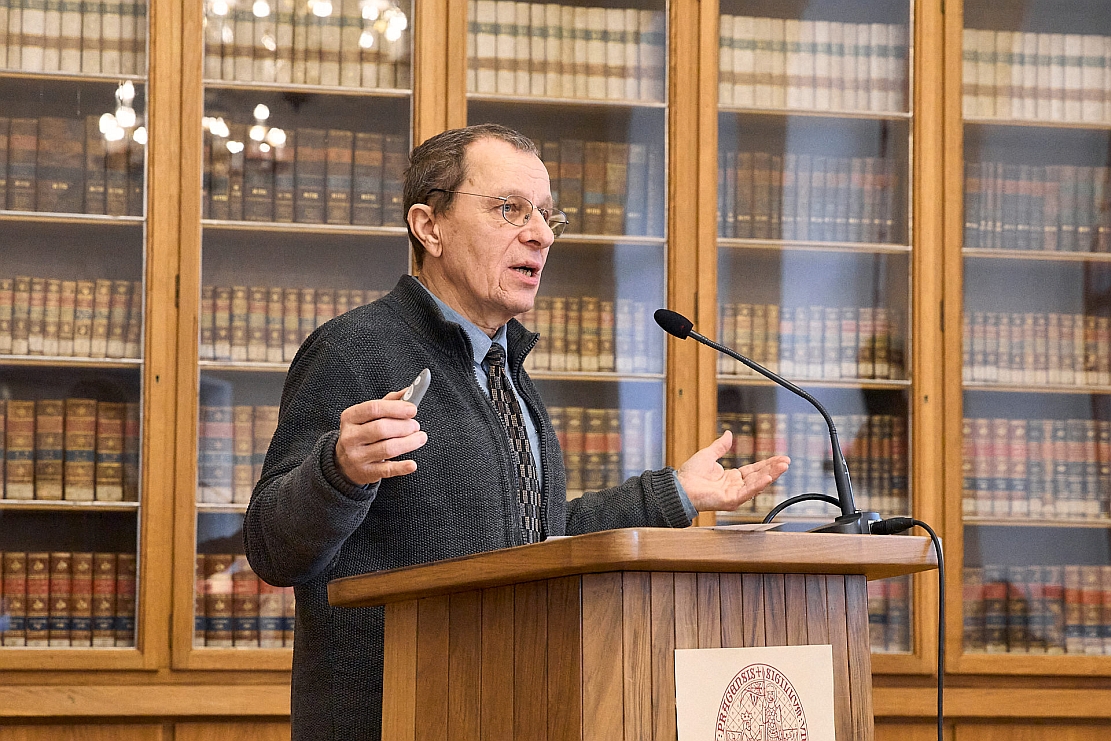
CU's Zdeněk Strakoš knows what it takes to clinch an ERC grant. A fount of knowledge on how to apply - and why.
Getting a grant is big a responsibility
“Science is based on supporting the initiative of individuals. Thus, it cannot be a democratic arrangement and decision-making. It is not true that the more money you invest in it, the better results you get in science. Funding should be distributed to those who are able to use it effectively: to come up with original ideas and develop their talents for the benefit of all. I would underline the benefit of all. It is therefore clear that this is not about creating an elitist group and that we do not divide scientists into ERC grant holders and 'non-holders'," says Professor Zdeněk Strakoš from the Faculty of Mathematics and Physics of Charles University.
The holder of a number of prestigious awards has been evaluating ERC grants since the very beginning in 2017. He says that winning an ERC grant is first and foremost a responsibility. It is based on the biblical rule: “He who wants to be the greatest among you, let him serve all. Indeed, the award of an ERC grant is an assumption of the burden of responsibility for the development of the field. Anyone who hasn't tried it has no idea how demanding service is.”
We wanted to know if the young scientists from CU are curious enough. “Curiosity is only one important part, namely the initial part. Applicants know that thanks to funding they can remain financially independent in their profession, in their research for a while. But they have to set a direction, build a team of people and lead them. A leader in the true sense of the word can hardly be someone who is egocentric, who feels that the world is at their feet. It is important to use the opportunity to develop one's talents for the benefit of society,” Professor Strakoš said.
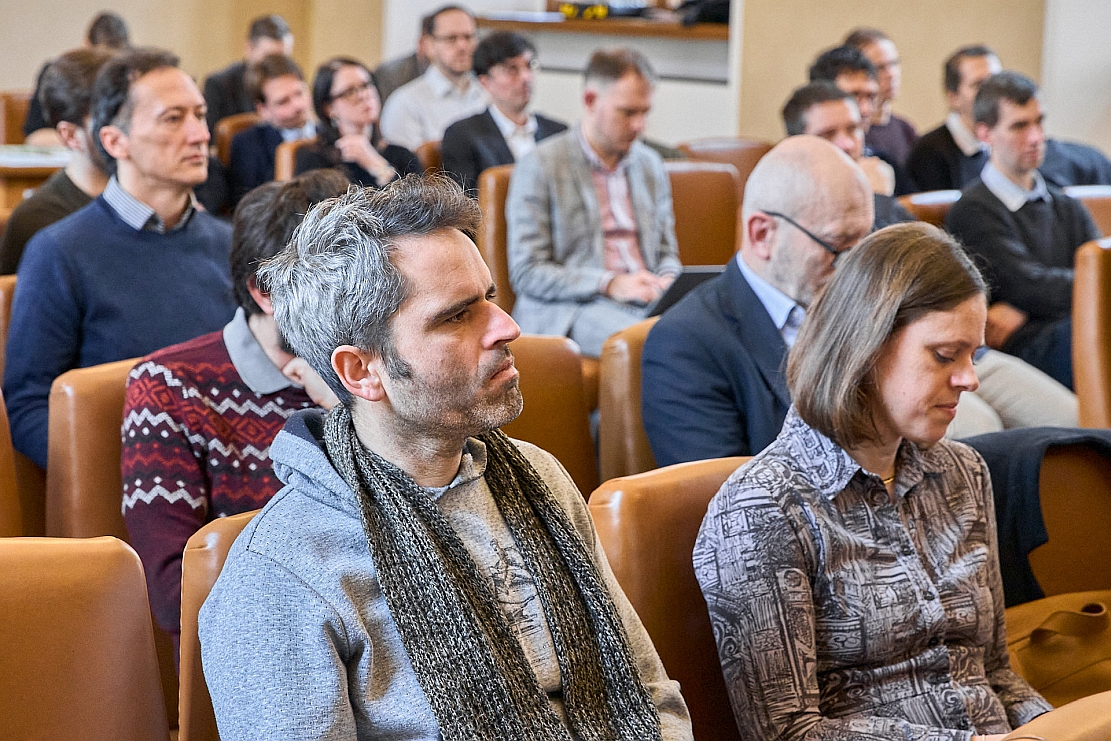
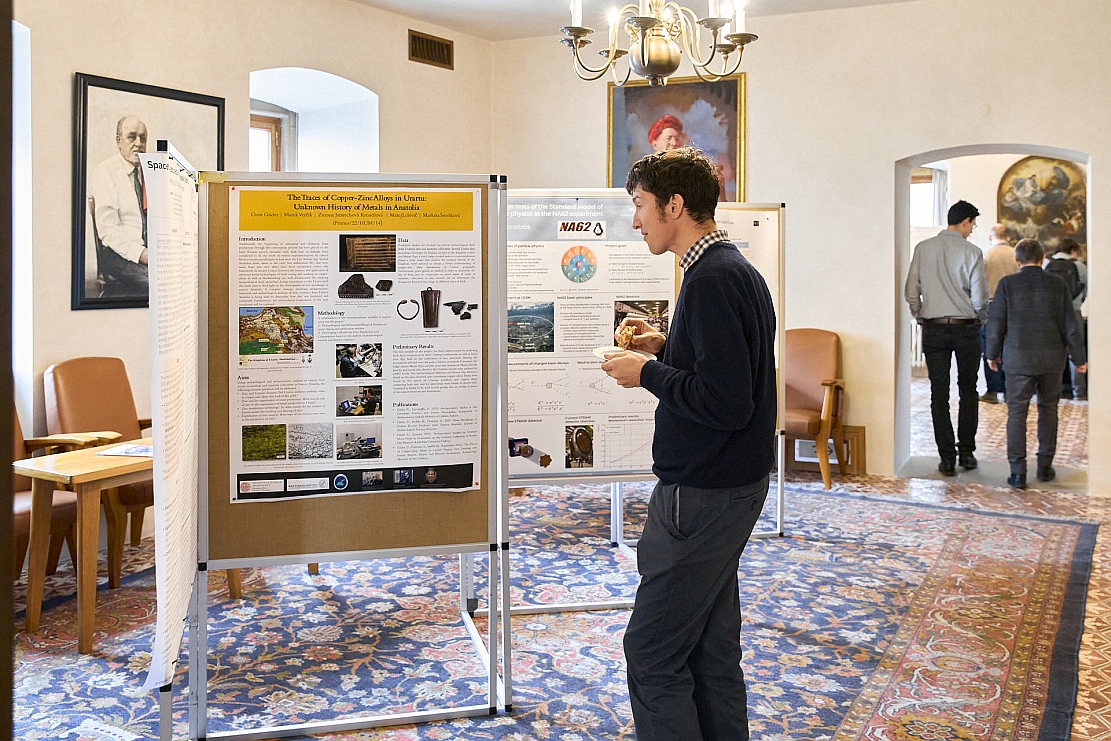
Attendees and potential applicants listen up. Right, visitors look at documentation about recipients this year.


